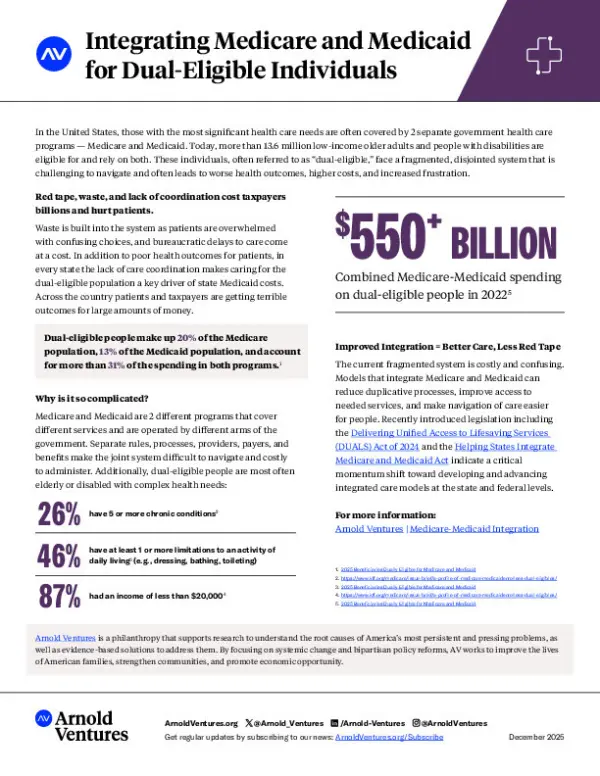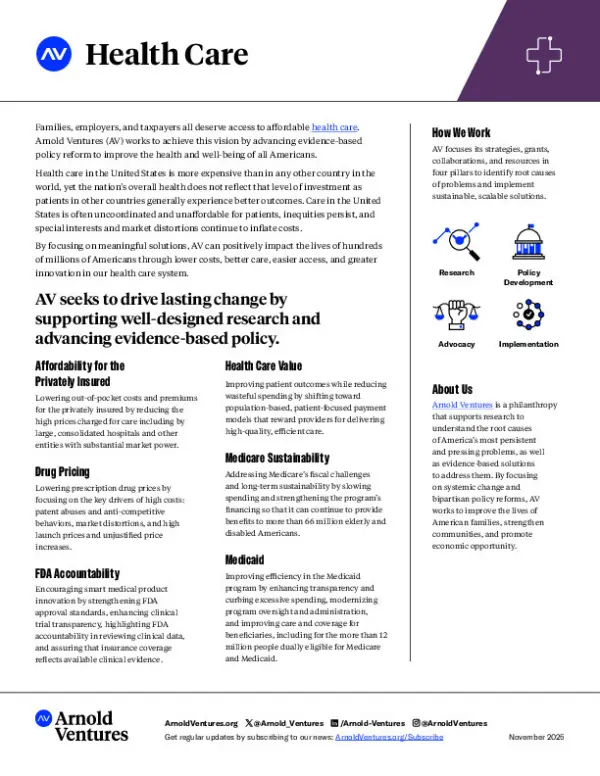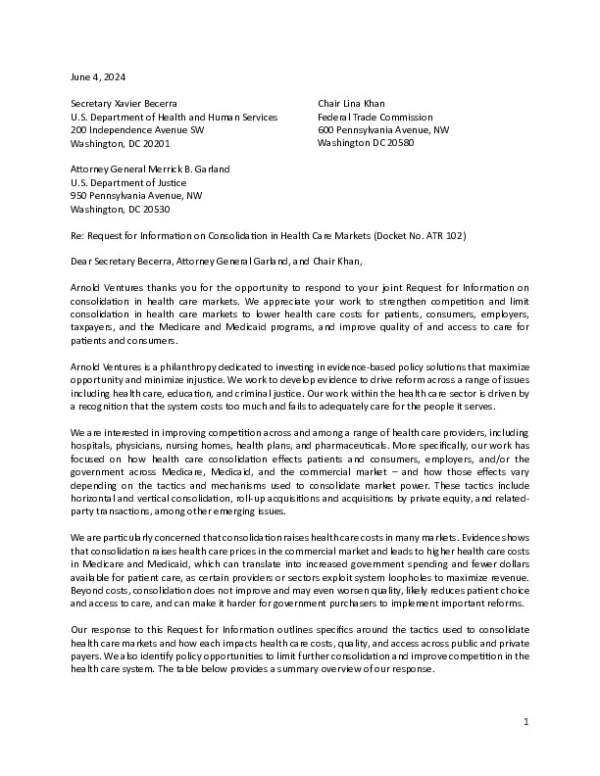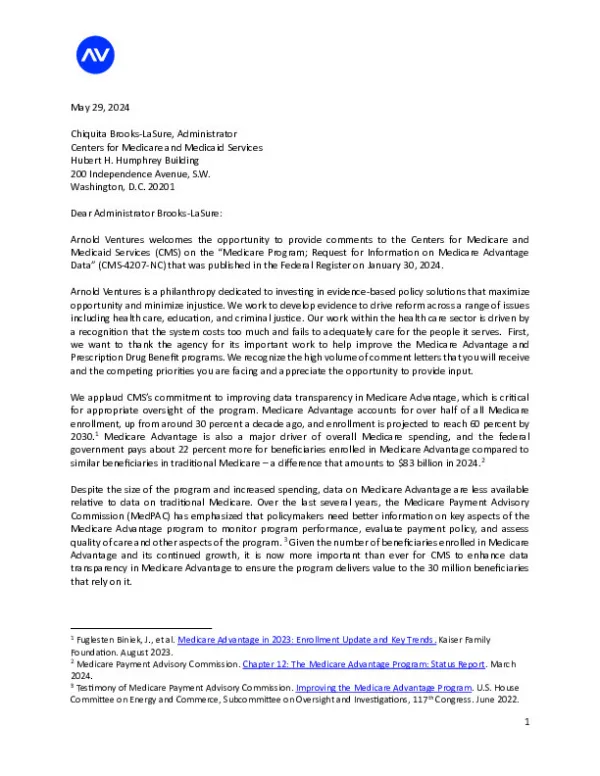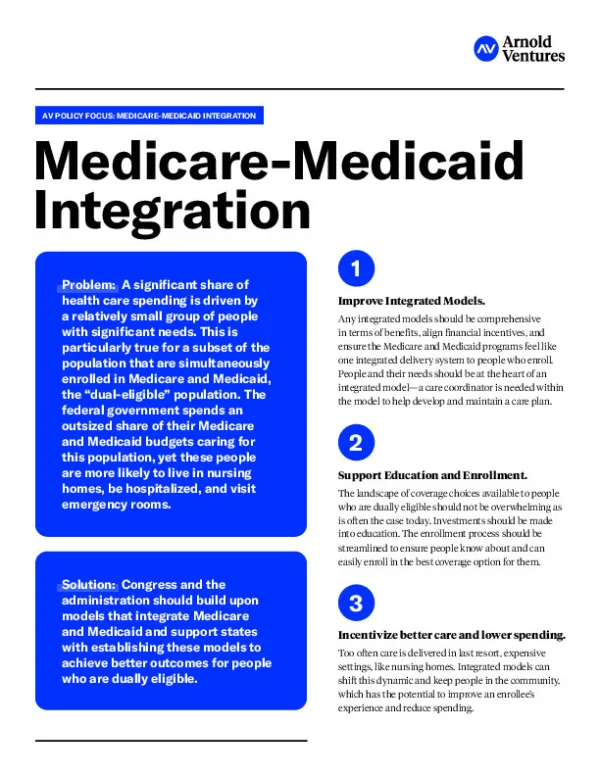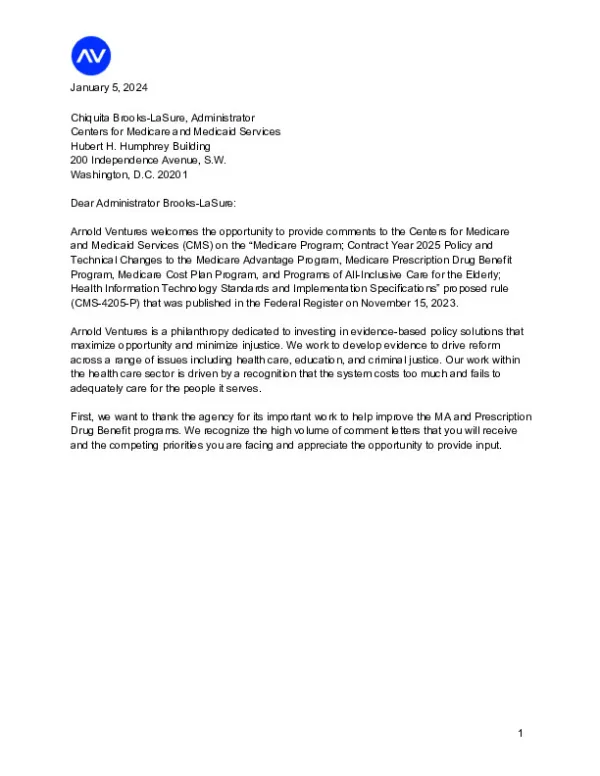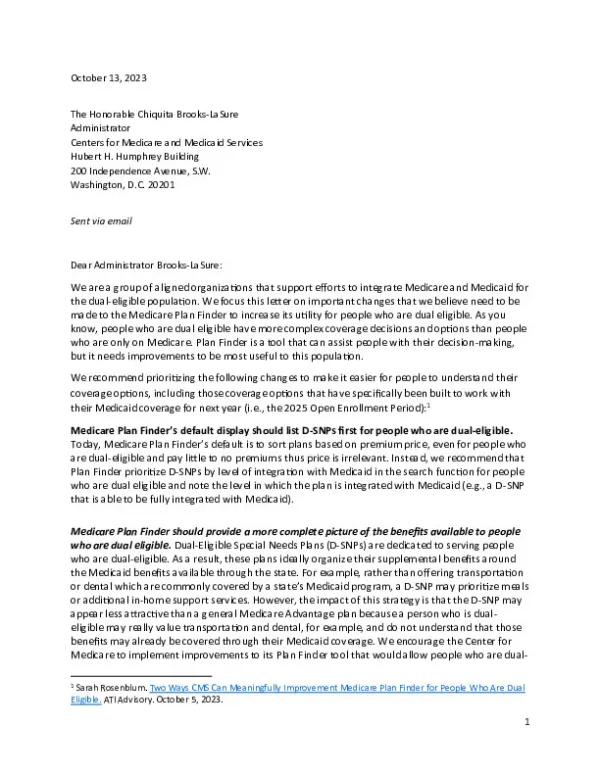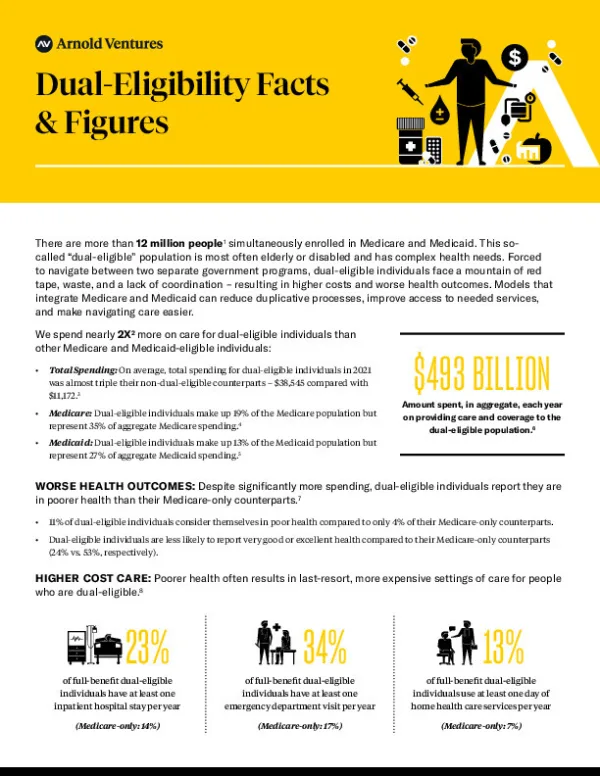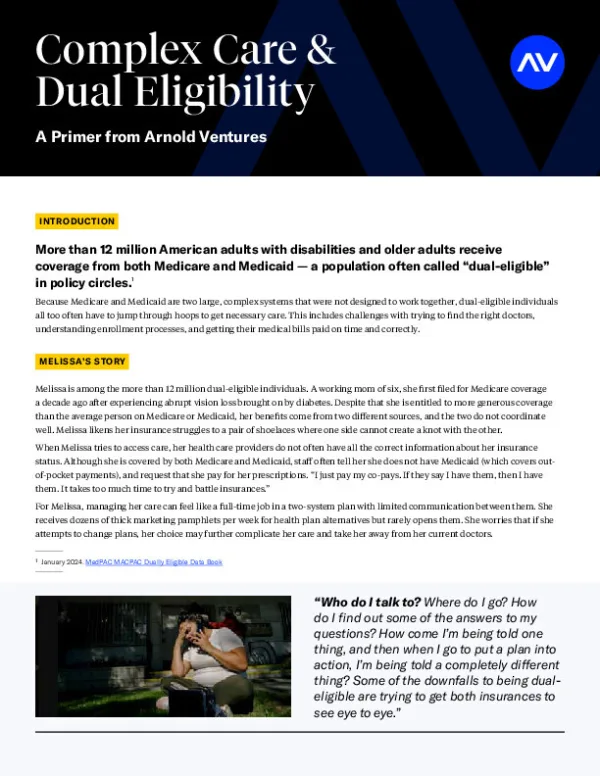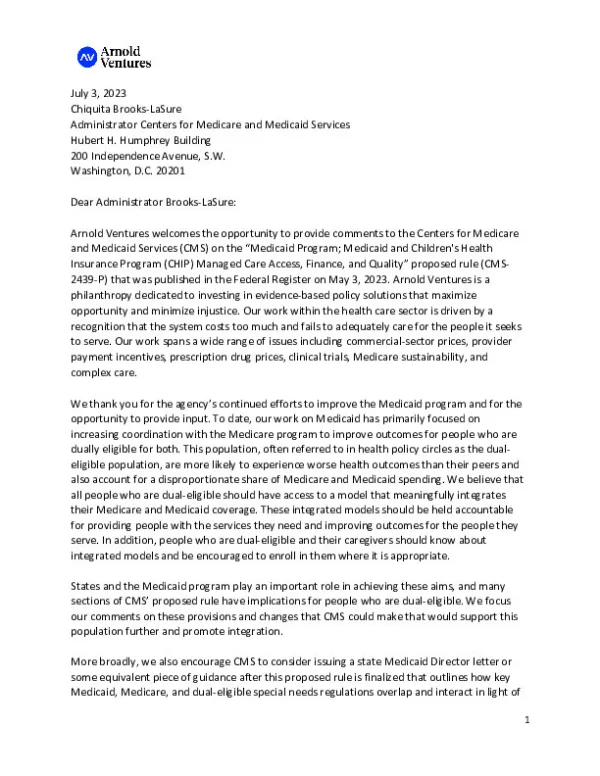Medicare-Medicaid Integration

When health care is fragmented, patients suffer and costs go up. People are healthier — physically and mentally — when their care is coordinated and their full needs are met.
Health care in the U.S. is broken and disjointed — and nowhere is that more apparent than among a population of individuals who have some of the most significant care needs in the country. About 12 million people in the U.S. are covered by both Medicare and Medicaid. These so-called “dual eligible” individuals account for a disproportionately high share of government health spending and often experience poor health outcomes.
Medicare and Medicaid are two different programs that cover different services and are operated by different arms of the government. Separate rules, processes, providers, and benefits make the system difficult to navigate. Our aim is to increase coordination of care for dual-eligible beneficiaries by promoting evidence-based models that provide seamless and integrated care across the continuum of services, including acute care, long-term support services, home care, behavioral health and social services needs. We back the development of state and federal policies that can improve this coordination.
Image: Getty Images







